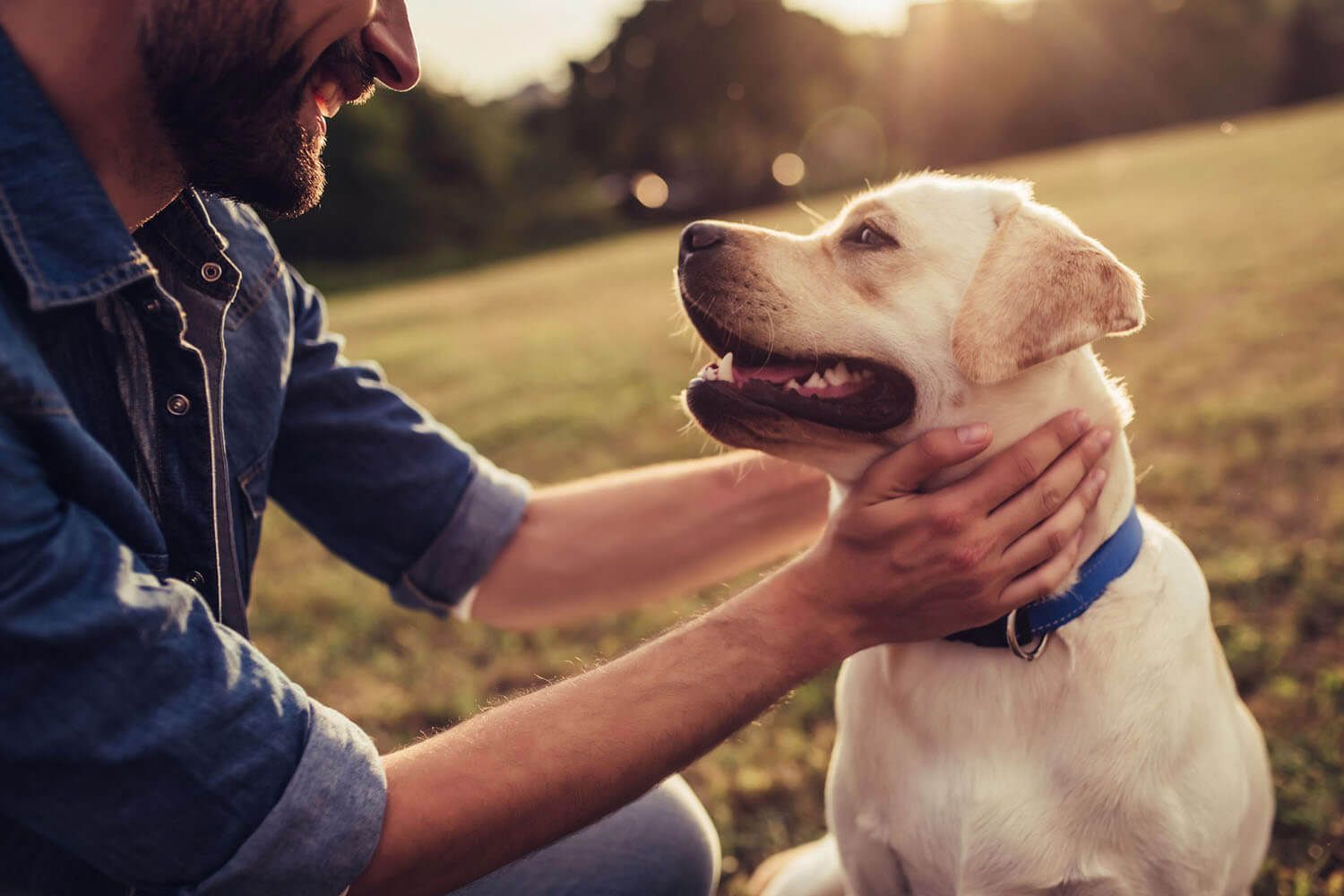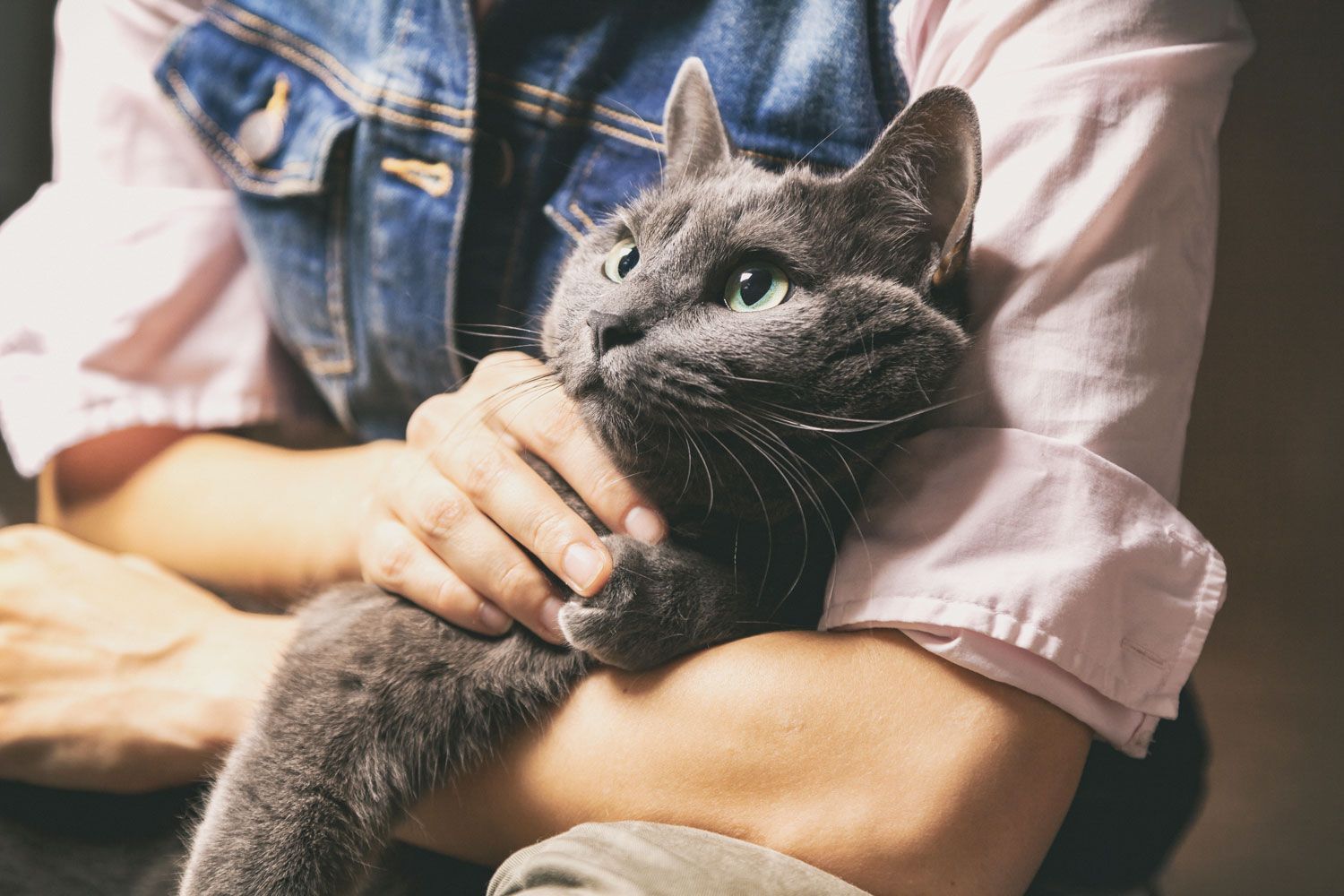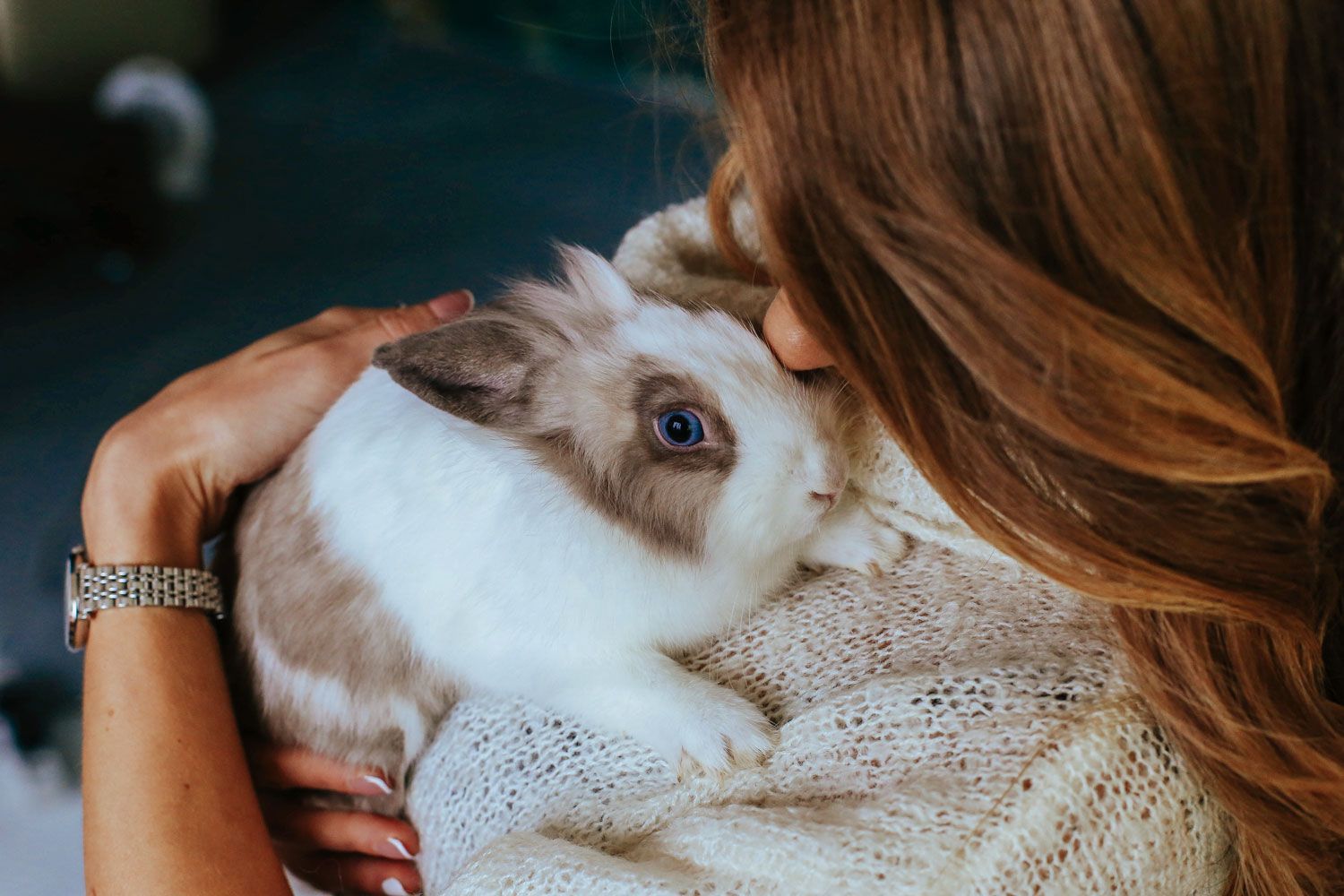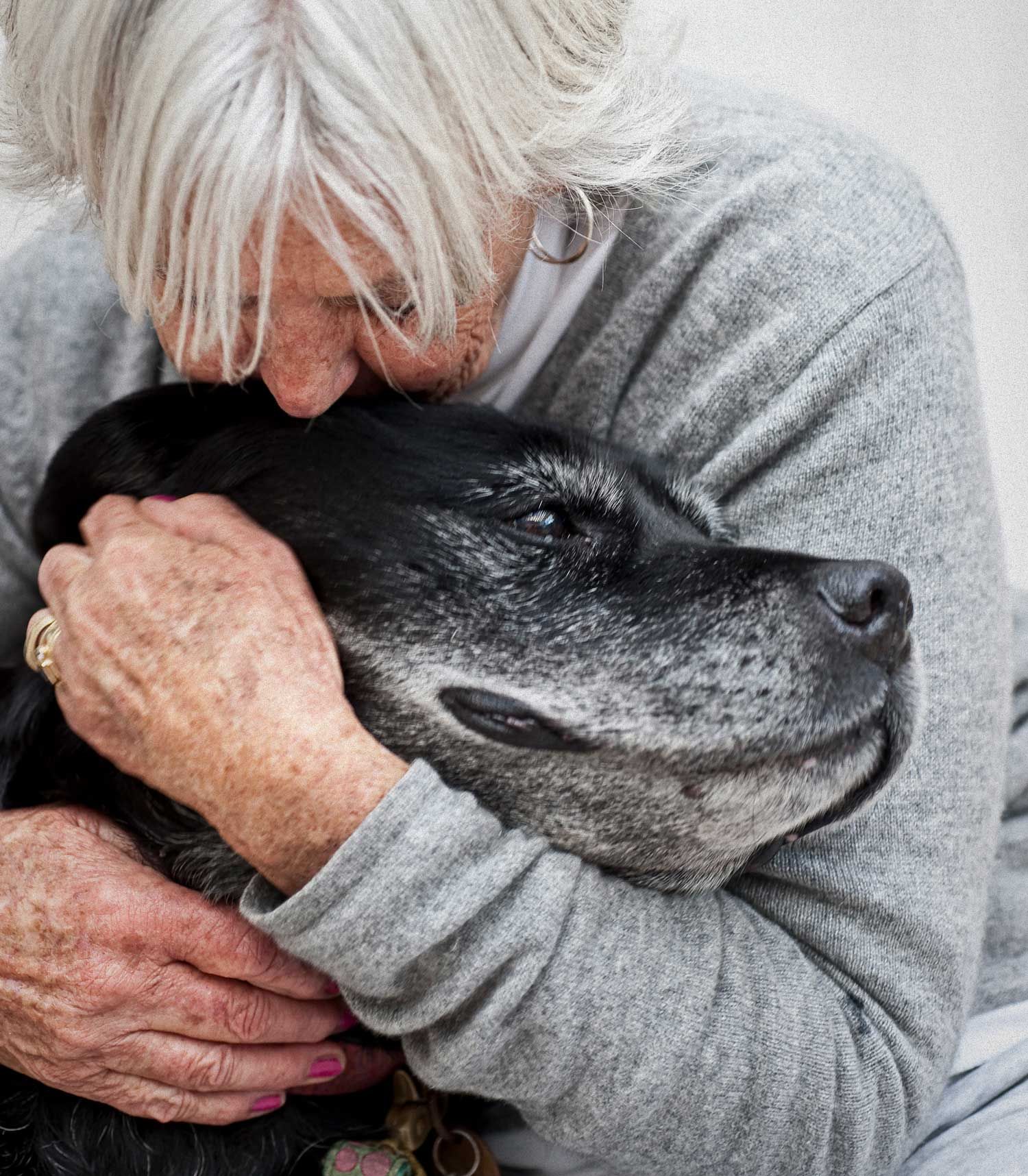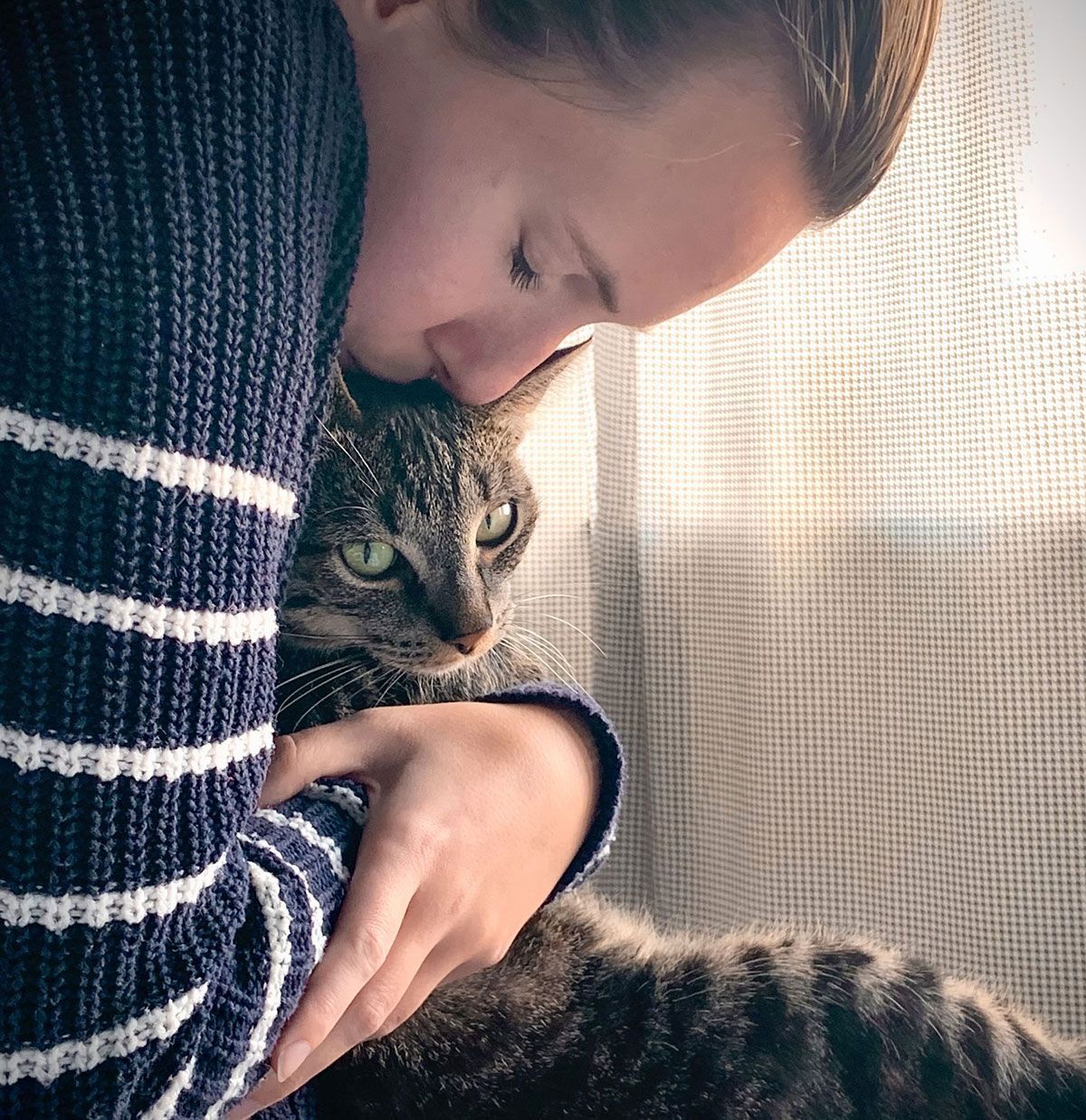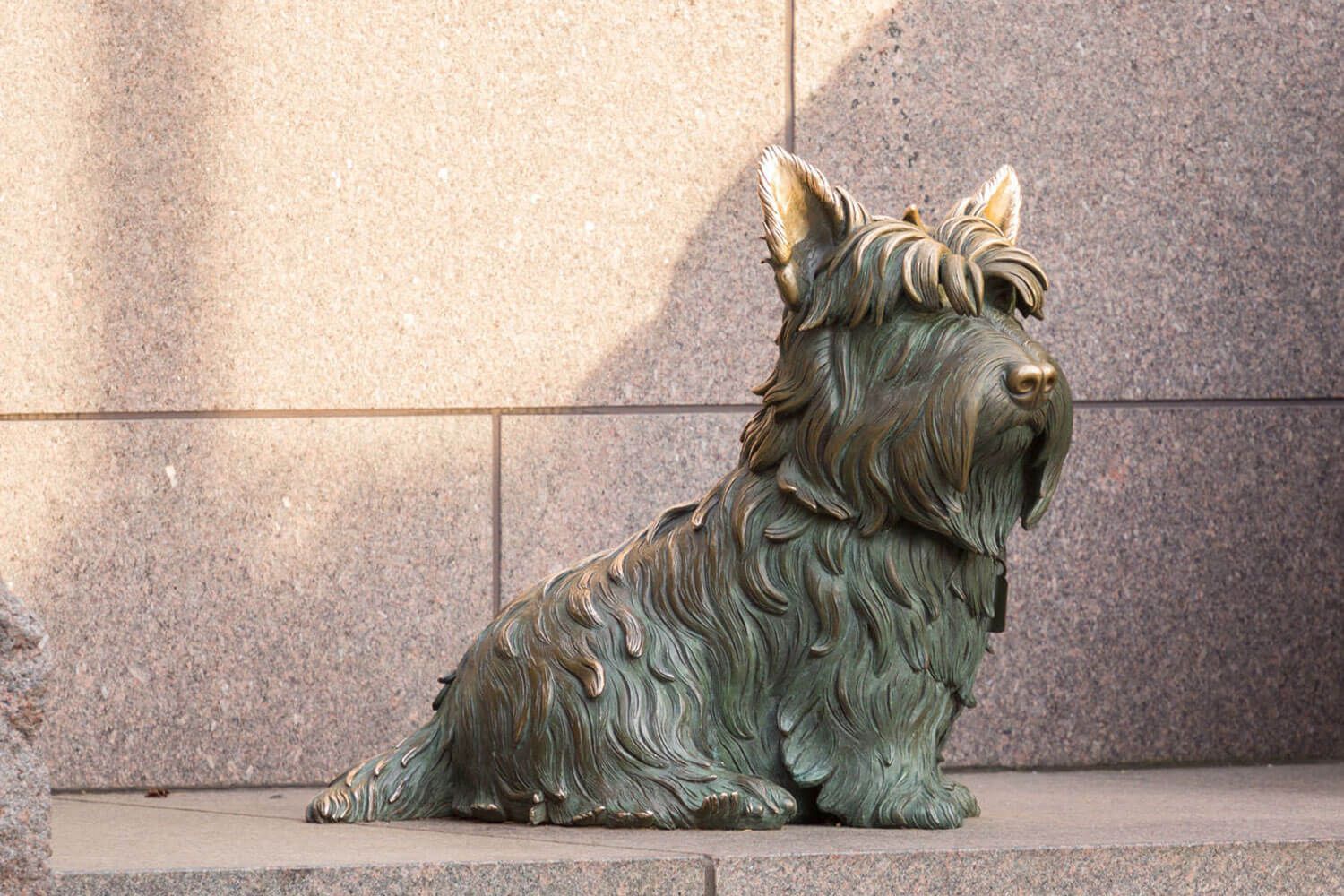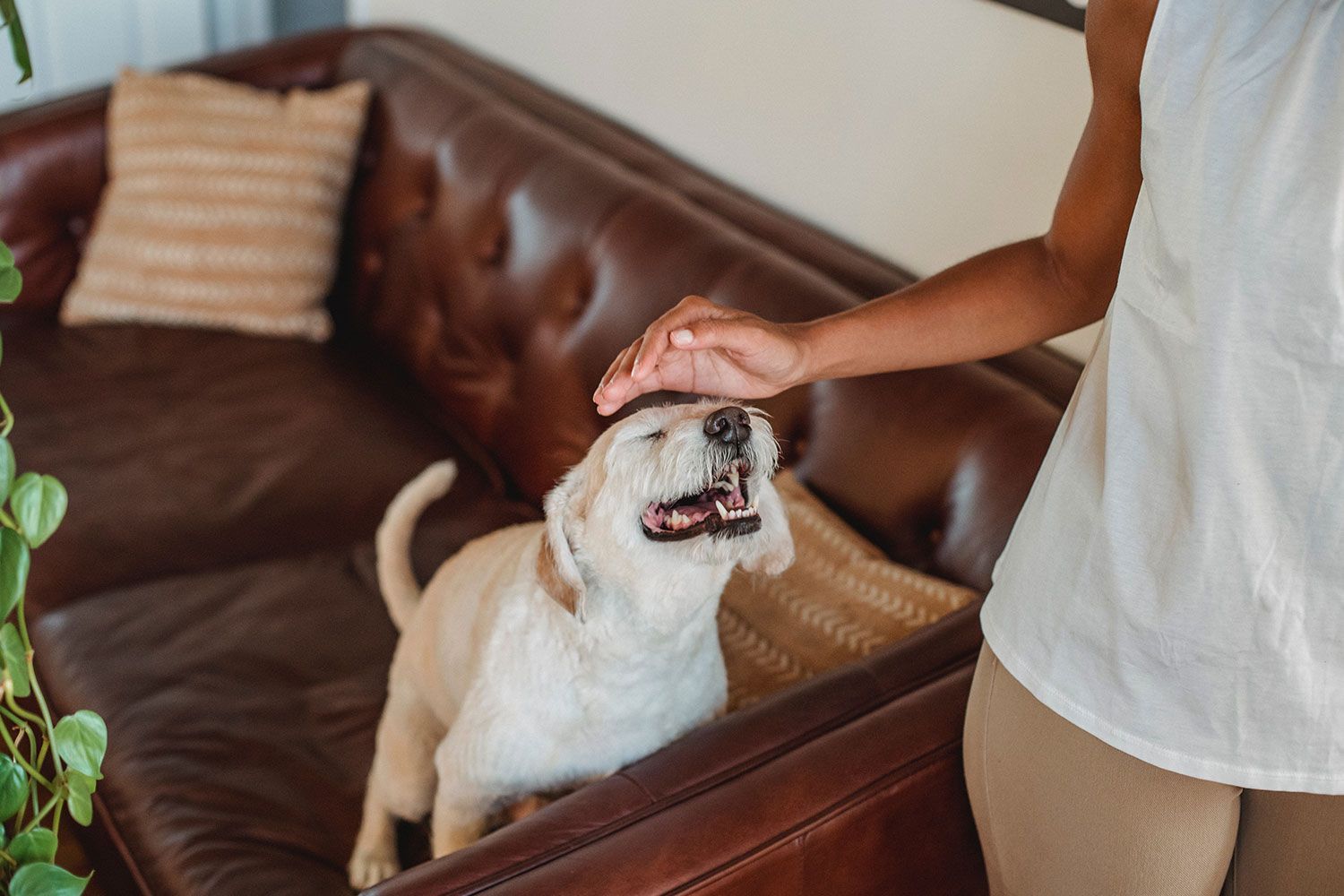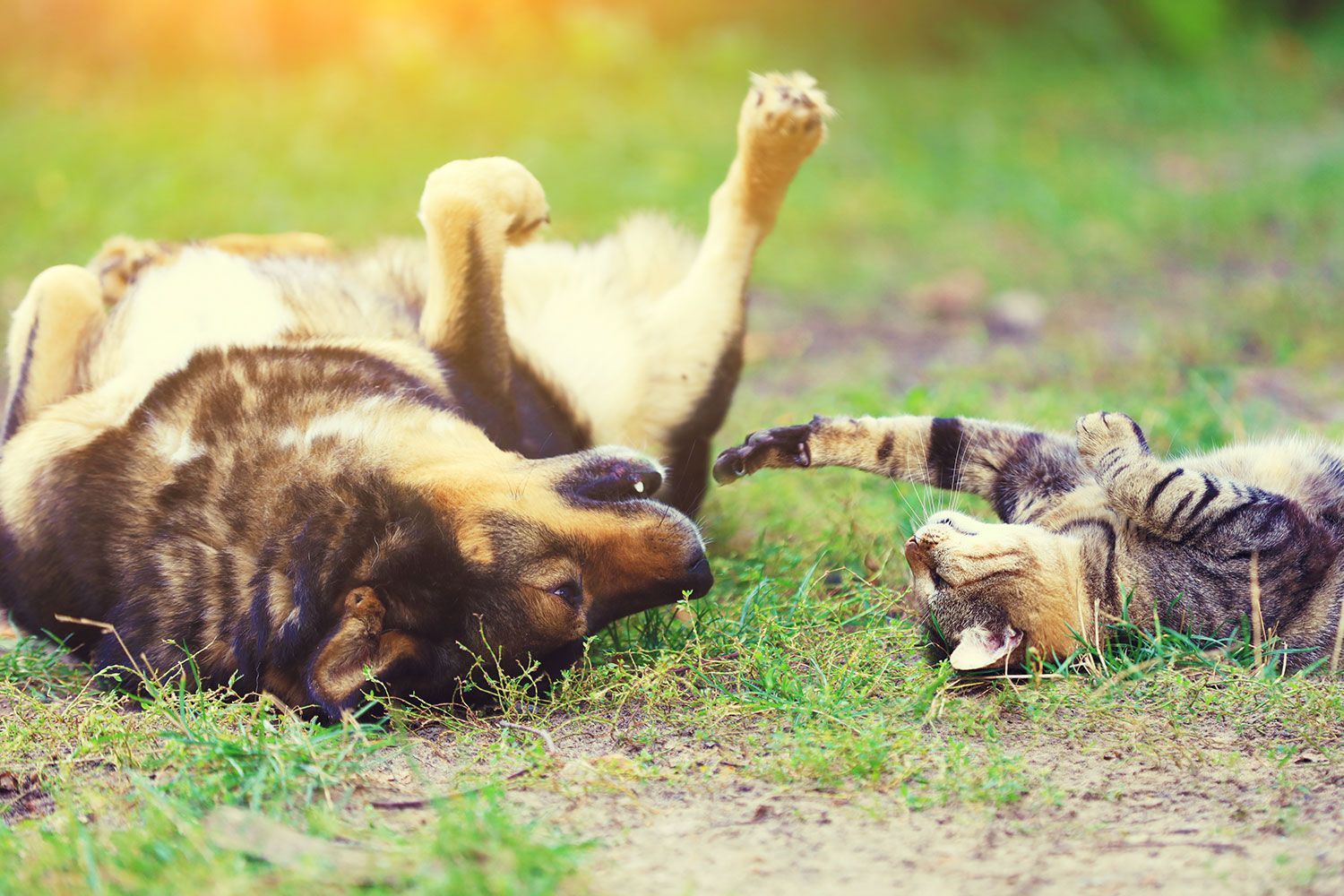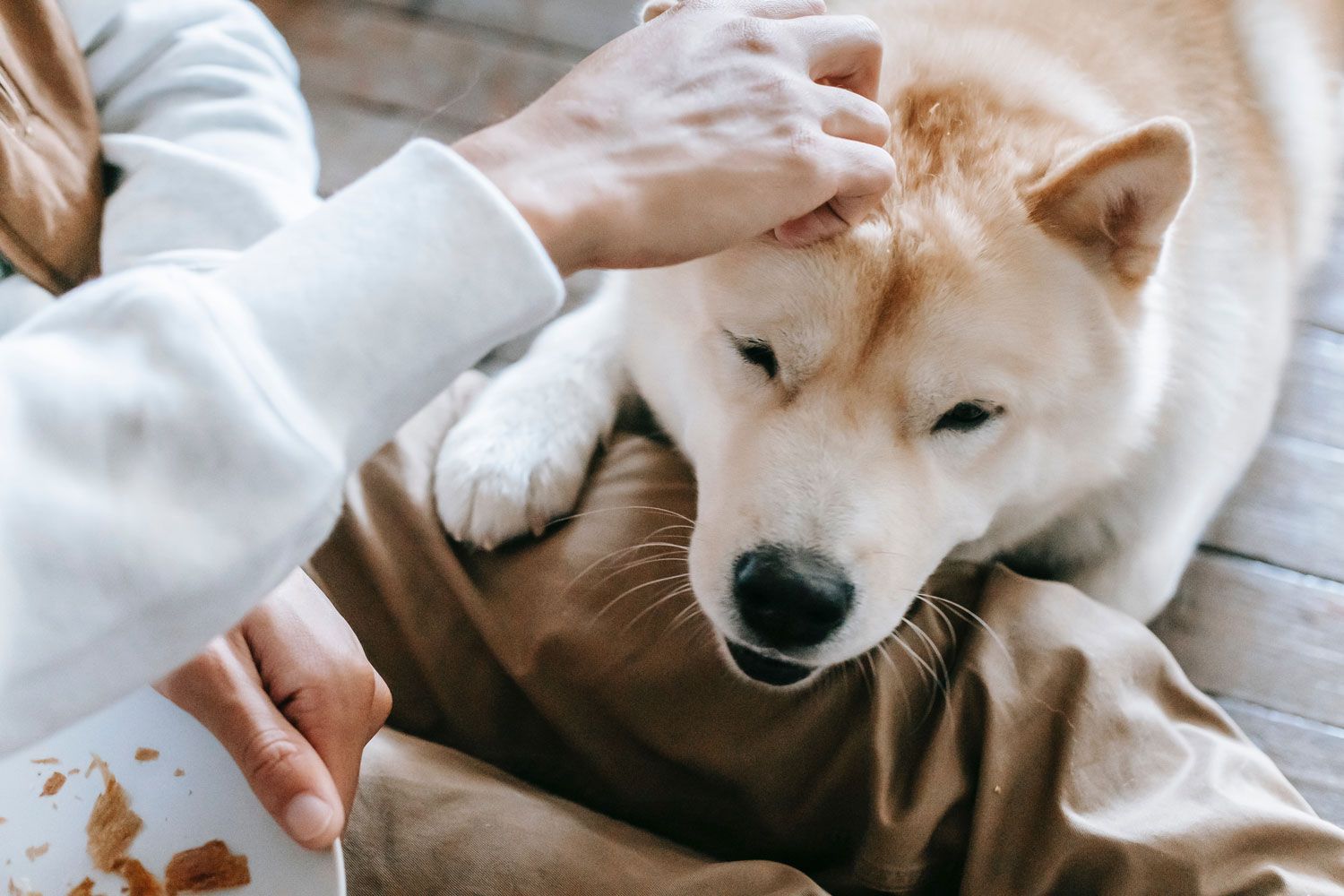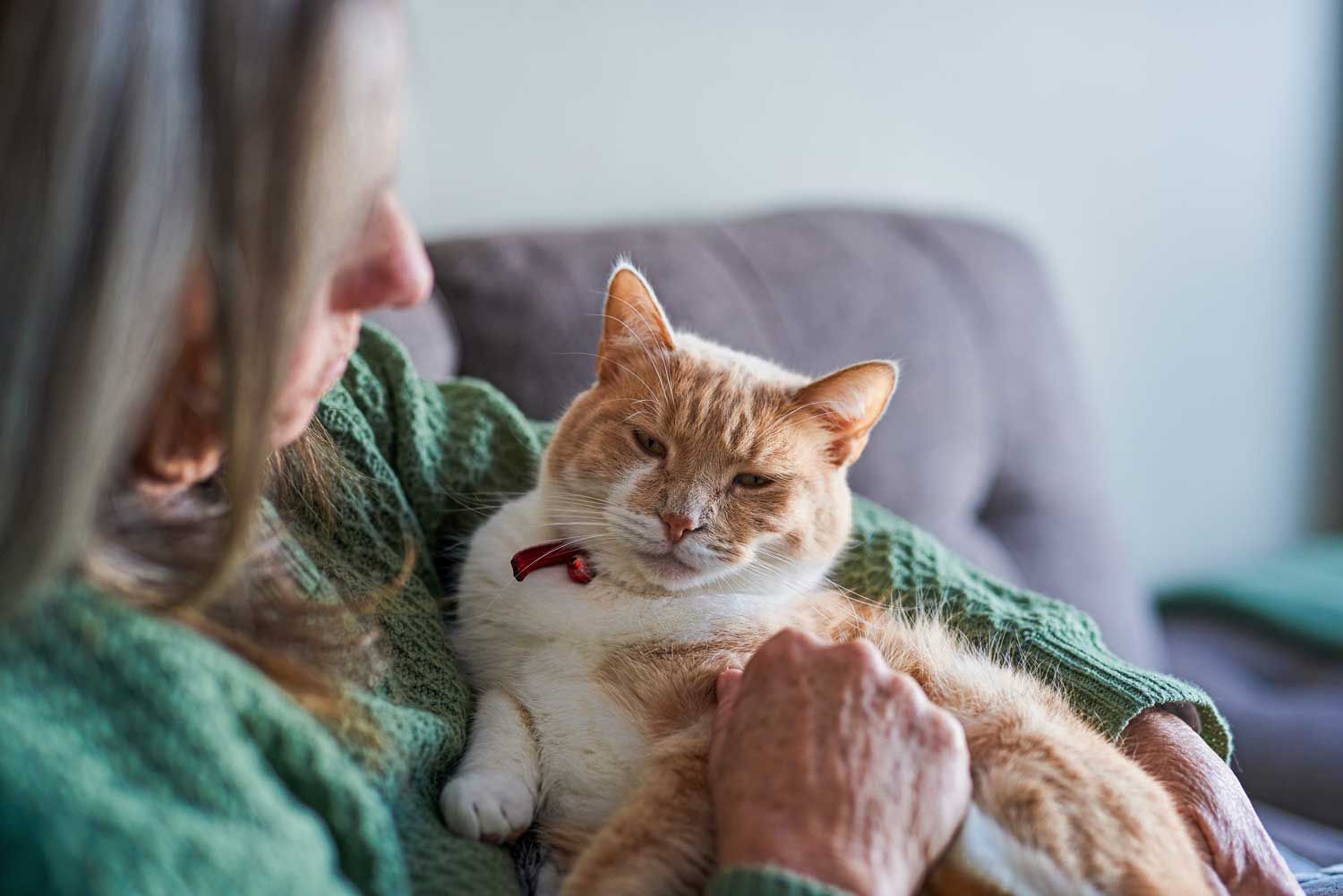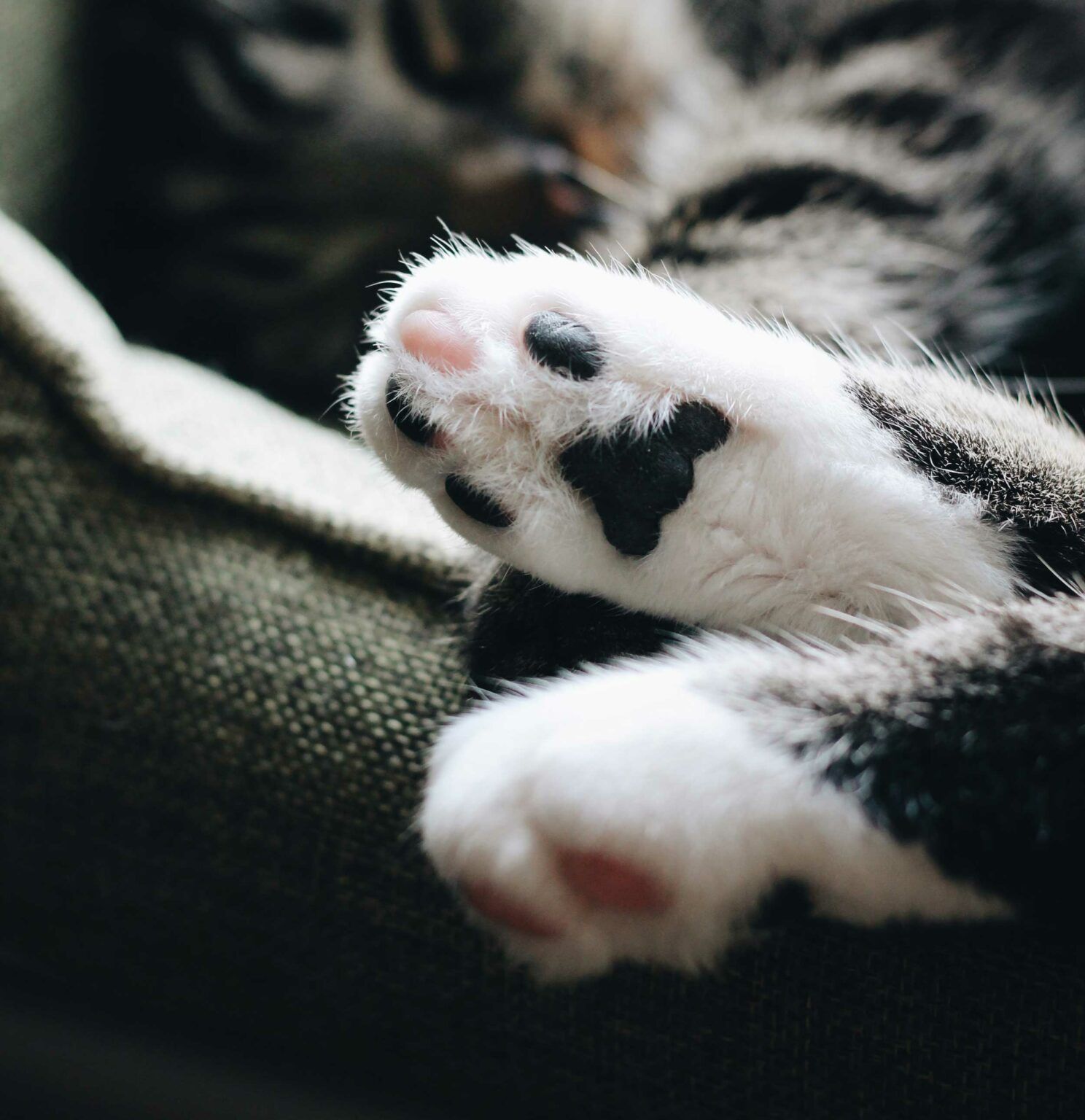Animals Grieve, Too
Animals Grieve, Too
How to comfort your other pets after one dies.
The loss of a furry friend affects everyone in the family – including other pets. This is especially true for bonded companion animals. When your dog or cat loses their favorite playmate, it’s normal for them to go through a period of mourning. Understanding the signs of grief in animals and knowing what to do to ease your companion’s pain can help both of you through the loss of a beloved pet.
Do Pets Understand Death?
Because animals cannot tell us what they’re thinking and feeling, we can only infer from their actions what they may be going through. It’s likely that animals don’t understand death the same way that we do. They’re more likely to live in the moment and probably don’t grapple with the concept of mortality. But animals certainly do show signs of grief and mourning after the loss of loved ones.
In the wild, many animals have been observed grieving in ways quite similar to our own. Elephants will carry the remains of herd members who have passed on and will stay near the bodies of their deceased companions for days in what could be perceived as a mourning ritual. Apes, birds, and dolphins have all been documented as expressing sadness and grief in the wild. Even the smallest of domestic animals like rats and rabbits can become depressed after losing a playmate.
One thing that often helps is to let your surviving animal see and smell the deceased pet. This is the only way to communicate with your dog or cat that a loss has occurred and that their friend won’t be coming home. Animals who have a chance to see the body are less likely to look around the house for their missing companion.
Another thing to consider is how other members of the household are coping with their own grief. Animals are highly empathetic, and your dog or cat will almost certainly pick up on your mood. Your pet may not understand why you are upset, but your sadness can affect their mood as well. It’s normal for an animal’s behavior to change for a while during this time of mourning as other household members grapple with a loss.
Signs of Grief in Animals
Just like humans, animals are individuals and all of them grieve in different ways. Some pets will be quite stoic, and others may seem entirely unaffected. It’s important to remember that the response a pet has to the death of another animal has no malicious intent; your pet is simply coping with their loss the only way they know how.
There are several common signs of grief in dogs and cats:
- Loss of appetite or disinterest in food and treats
- Irritability and stand-offish behavior
- Sleeping more than usual or seeming sluggish and depressed
- Neediness or “clingy” behavior and demands for attention
- New behavioral problems such as inappropriate chewing or “accidents” in the house
- Changes in vocalization, such as whimpering and crying
- Sleeping in the deceased pet’s favorite spot, playing with their toys, rolling in their scent, etc.
- Searching the house or yard for the missing family member
The duration of these symptoms can vary from a few days to several weeks or even months depending on the animal’s personality and the strength of their bond with the deceased pet. If you have multiple surviving pets, their behaviors and relationships may go through a transition as they work out a new hierarchy and cope with the loss of a packmate or friend. Don’t be surprised if pets who previously got along fine suddenly start to fight; this is a normal part of the animal grieving process. Only step in if it looks like someone might get hurt or if one pet is looking especially harassed.
If your pet’s grief symptoms are severe or don’t seem to improve with time, it’s a good idea to consult a veterinarian. There are homeopathic and natural remedies available to help with severe grief in animals, and your veterinarian may be able to prescribe treatments that can ease behavioral problems or depression in your pet. You’ll also want to speak to a veterinarian right away if your pet refuses to eat and is showing any signs of illness such as fever, diarrhea, or vomiting. Ruling out physical illness is an important step in helping your companion cope with grief.
How to Help Your Pet Through Grief
When your household is dealing with the loss of a pet, everyone grieves in their own way. This is just as true for your pet as for you and the other humans in the household. For this reason, there is no “one size fits all” approach to helping your pet through the loss of a companion. There are, however, a few things to keep in mind that can help ease the pain of loss for your furry companion:
- Maintain routine. Pets may not understand the concept of death, but they certainly understand disruptions to their routine. Try to keep your pet’s schedule as consistent as possible to reduce stress and anxiety.
- Don’t reinforce negative behaviors. Though it’s tempting to try to soothe or baby your pet when they’re crying or acting up, this can backfire by reinforcing those behaviors. It’s best to ignore unwanted behavior and maintain a calm, gentle presence rather than feeding into the animal’s negative conduct.
- Keep active. Exercise is a mood-booster for animals and people alike. Introduce additional play sessions or long walks with your pet to provide distraction and stimulation to combat depression. Introducing new, challenging toys like food puzzles can help keep your pet’s mind occupied when you’re not around to offer distraction.
- Listen to your pet’s needs. If your pet is feeling extra clingy or affectionate, it’s fine to indulge in more cuddle time than usual. But if your pet is aloof in their depression, don’t try to force interaction. Leave some space for your pet to come to you when they’re ready.
Grief is painful, and coping with the loss of a pet takes time. But by being there and helping your pet through the mourning process, you can start on your own path toward healing as well. Whether you’re anticipating the passing of a beloved pet or have recently experienced a loss, Best Friends Pet Passings & Cremations in Albuquerque, New Mexico is here to help however we can. We offer pet cremation services and pet memorial services. Call us at (803) 888-7095 to learn more or schedule services
